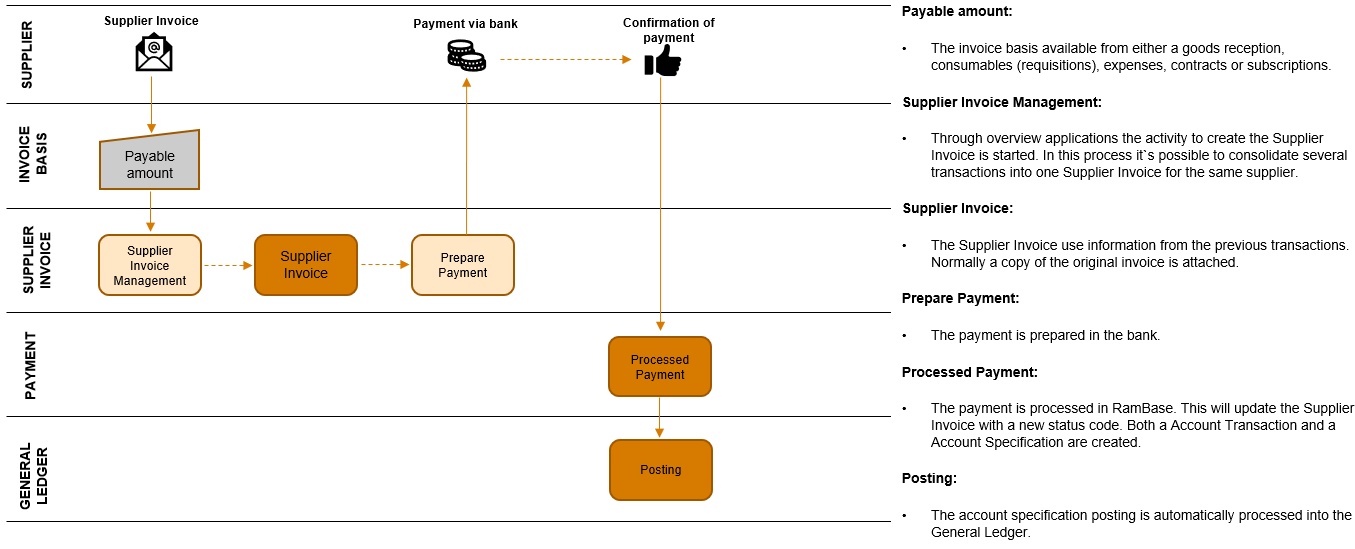Payables

The payables are the company’s unrealized debt to the suppliers or the debtors. The payables are accrued when, for example, goods or services are purchased, and a supplier invoice has been received.
The payables are connected to the General Ledger via a sub ledger called Accounts payable. The Accounts payable gives an overview of all transactions between your own company and each supplier, and is used for keeping track of the settlement of open and closed posts in the General Ledger.
Output from payables process
An updated overview of what you owe your suppliers.
An age distributed overview of the payables.
Actions for settlement of the debts.
Tasks involved in this process
Supplier invoicing - To register invoices and the settlement of the debt are some of the tasks that are included in the work on payables. Depending on the type of transaction that lead to the invoice, the supplier invoices are handled in different ways in the system.There are many different types of transactions. Some of them are connected to procurement and reception of goods, e.g. purchase of goods/materials or consumables on requisitions. Other transactions are not directly connected to procurement, e.g. regular expenses like rent, electricity, or subscriptions.
Overview of the accounts payable - To ensure an updated overview of the payables, it is important to work on the Accounts payable continuously.
Follow up on the payables ledger - The suppliers sometimes need statement of accounts to get an overview of the transactions between the companies. Then the suppliers can compare, and possibly make corrections due to deviations and incorrect entries.Internally, an updated payables ledger will form the basis for the cash management, and the follow up on overdue posts.
Credit handling - When your company receives a credit note from a supplier, it has to be manually registered in RamBase. Credit notes can be a response to complaints about received goods and/or services, or disagreements regarding prices.